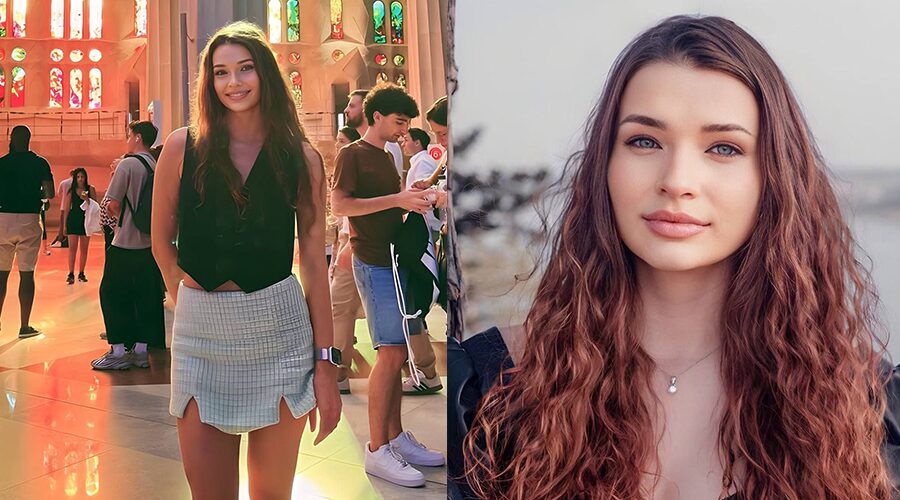
Dating Your Best Friend: The Pros and Cons You’ve Never Considered!
Navigating relationships is never easy, and the idea of dating your best friend can stir up a whirlwind of emotions and contemplation. It’s a scenario many of us have encountered or considered at some point, especially when there’s a strong bond and mutual attraction. But what happens when you cross that friendship line? In this article, I’ll explore the pros and cons of dating your best friend, drawing from personal experiences, to help you make an informed decision if you find yourself in this unique situation.
The Deep Connection: A Strong Foundation
One of the strongest advantages of dating your best friend lies in the deep connection you already share. Unlike with a typical date, where you may spend the initial months learning about each other’s likes, dislikes, and quirks, you already have a solid understanding of these essential details.
Your dynamics revolve around years of friendship, which means that the foundation of trust has been built long before romantic feelings kick in. You’ve navigated life’s ups and downs together, which cultivates a sense of security that only intensifies once romantic feelings are acknowledged.
During my own experience, I noticed that transitioning from friends to partners made communication seamless. We understood each other’s pasts, family dynamics, and even individual quirks that would take a stranger longer to learn. That deep-rooted history reduced the awkwardness often found in new relationships, allowing us to dive into romance while feeling comfortable.
Shared History: Memories to Cherish
Dating your best friend means that you already have a plethora of shared memories, inside jokes, and experiences to draw upon. This unique backdrop can enrich your relationship in ways you might not have anticipated. From childhood memories to recent adventures, you can reminisce and build upon these shared moments.
In my relationship, it was the small, seemingly insignificant memories that we cherished the most. Remembering the time we got stranded in the rain during a road trip or the late-night talks we had while navigating our early 20s created an emotional intimacy that fostered romance. Our shared history became a treasure trove that reinforced our connection and ignited passion.

Understanding Each Other’s Quirks
Everyone has their quirks, and the great thing about dating a best friend is that you likely already know what these are. Unlike someone new who may take time to understand your peculiar habits, your best friend is already aware of your quirks. You can be your authentic self without fear of judgment.
One memorable moment in my dating experience was when I realized that my love for cheesy ’80s movies would never be a dealbreaker. My partner not only shared this fascination but also participated in spontaneous movie marathons that often ended with us quoting our favorite lines. The ability to be entirely yourself fosters an environment where love can flourish without reservations.
Open and Honest Communication
Good communication is the bedrock of any successful relationship, and when dating your best friend, you are already halfway there. You’re privy to each other’s communication styles, preferences, and triggers, making it easier to express emotions and resolve conflicts.
In my experience, we tackled tough conversations without avoiding uncomfortable topics. If something bothered one of us, we felt at ease bringing it up because our friendship had laid the groundwork for openness. This two-way street of communication helped us navigate potential pitfalls that would typically evolve in new relationships, allowing us to focus on growth rather than misunderstandings.
Potential Risks: What Happens if it Doesn’t Work?
Despite the perks, dating your best friend does come with its risks. There is always the looming concern of what will happen if the relationship doesn’t work out. Friendship breakups can be just as painful, if not more so than romantic ones. Losing your best friend while also facing the aftermath of a romantic relationship gone awry can be emotionally taxing.
In my own journey, I have seen friendships turn sour after a breakup. There are awkward moments, silence, and the daunting task of navigating mutual friends. The fear of losing a lifelong friendship silenced any thoughts of pursuing a romantic relationship with my best friend for a long time. It wasn’t until we both felt ready to address the risk of losing each other that we finally took the plunge.

Jealousy and Boundaries: A Potential Minefield
One often overlooked downside is the potential for jealousy and boundary issues that can arise. When you become romantically involved with your best friend, the lines between friendship and romance can sometimes blur, leading to misunderstandings.
I experienced this firsthand. Once we began dating, I found it challenging to balance time spent with other friends. The initial euphoria of romance led to some jealousy about our social circles, especially when one of us would hang out separately. It was essential to set boundaries and communicate openly about feelings of insecurity. Without firm boundaries, jealousy can creep in and disrupt the harmony of a relationship that once felt so natural and uncomplicated.
Moving Too Fast: The Pressure to Accelerate
Another aspect that can complicate dating your best friend is the pressure to accelerate the relationship. It’s not uncommon to feel that since you know each other so well, you should skip some traditional stages of dating. However, rushing can lead to issues down the line.
For us, we quickly fell into routines that mirrored couple-like behaviors without taking the time to engage in the traditional dating phase. While it was comforting to skip the awkward introductions and surface-level conversations, we realized we skipped the excitement of exploring each other in a romantic light. Allowing the relationship to develop naturally rather than forcing it to evolve quickly helped us maintain that sense of discovery that is so vital in romance.
The Social Dynamic: Friends or More?
When you transition from best friends to romantic partners, the social dynamics of mutual friends can shift. Friends may have their opinions on the relationship, which can complicate things. You might find yourself navigating awkward encounters if things don’t go well, which adds external pressure to the relationship.
During my experience, I found that some friends were supportive, while others questioned our decision. It created a fine line of judgment and pressure; sometimes, we felt the weight of needing to prove our relationship was worth pursuing. Being aware of how the social dynamic shifted and addressing it head-on allowed us to find our footing amidst external opinions.
The Sacred Space: Maintaining Independence
While sharing a close bond is fantastic, it’s crucial to maintain individual independence within the relationship. Dating your best friend can create a strong desire to spend all your time together, which can lead to losing sight of personal goals, interests, and friendships.
I learned the hard way that devoting too much time to our romantic relationship left little room for other important aspects of life. A balanced approach is vital, allowing both partners to cultivate their interests. This ensured that we continued to grow as individuals while nurturing our romantic bond.
Conclusion: Weighing the Pros and Cons
In conclusion, dating your best friend can be a rewarding yet complicated venture. The strong foundation of friendship can lead to a fulfilling and enriching relationship, filled with shared memories and deep understanding. However, it’s essential to consider the risks and challenges that can arise, including the potential loss of friendship, jealousy, and shifting social dynamics.
Ultimately, every relationship is unique, and it’s essential to weigh the pros and cons carefully. Open communication, mutual understanding, and a willingness to navigate the complexities of your new relationship can lead to a beautiful combination of friendship and romance. If you find yourself at that crossroads, take a moment to reflect on the dynamics of your relationship, and maybe, just maybe, you’ll discover a path filled with love and laughter at the end.

